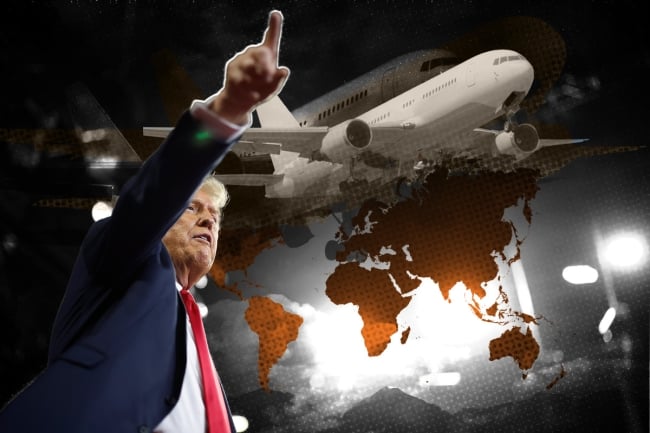Campuses Advise International Students to Return by Inauguration Day
Recalling the travel ban President-elect Trump signed in early 2017, some U.S. institutions are advising students to be back from their holiday travels by Jan. 20.

In 2017, days after his inauguration, President-elect Donald Trump banned immigrants and nonimmigrant visitors from seven majority-Muslim nations from entering the U.S.
At least three universities have encouraged their international students and employees to come back from the winter holiday break ahead of President-elect Donald Trump’s Jan. 20 inauguration, due to concerns that he could use his first days in office to issue executive orders blocking them from returning.
The University of Massachusetts Amherst’s Office of Global Affairs shared a holiday break travel advisory—noting that it was not a requirement or official policy—recommending that such individuals return by Inauguration Day.
“Based on previous experience with travel bans that were enacted in the first Trump Administration in [2017], the Office of Global Affairs is making this advisory out of an abundance of caution to hopefully prevent any possible travel disruption to members of our international community,” the office wrote on Instagram. “We are not able to speculate on what a travel ban will look like if enacted, nor can we speculate on what particular countries or regions of the world may or may not be affected.”
The message said the university would allow international students living on campus to move back into their campus housing early if necessary to accommodate the request.
Other institutions, including the Massachusetts Institute of Technology and Wesleyan University, sent similar notices to their international students.
“The safest way to avoid difficulty re-entering the country is to be physically present in the U.S. on January 19th and the days thereafter of the spring semester,” wrote Wesleyan’s Office of International Student Affairs in an email last Monday.
Fearing a Repeat of 2017
The institutions’ concerns seem to center on the potential of a travel ban like the one Trump enacted in January 2017. On the seventh day of his first term, Trump signed an executive order barring immigrants and nonimmigrant travelers from seven majority-Muslim nations from entering the U.S. for 90 days. The order also launched a review and revision of the vetting process for individuals coming from those nations.
“Now that our colleagues are safe, we want to be clear that we believe the executive order does nothing to make our country safer and represents a shameful ignorance of and indifference to the values that have traditionally made America a beacon of liberty and hope,” then-interim chancellor Peyton R. Helm and then-provost Mohammad Karim wrote in a statement.
The executive order was widely criticized not only for tearing apart the lives and families of many immigrants but also for its contradictory guidance regarding green card holders, which was resolved a few days after it was first signed.


